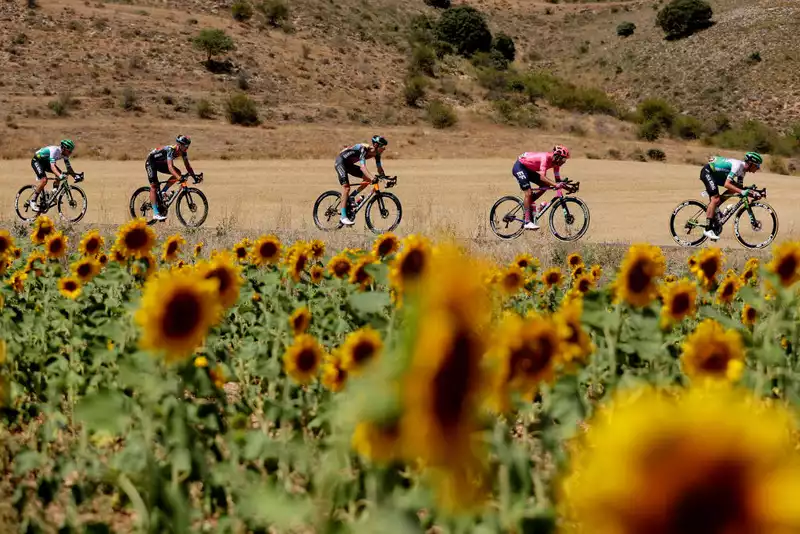On Monday, the Executive Board (EB) of the International Olympic Committee (IOC) voted to recommend to the UCI and other international sports federations that athletes and officials from Russia and Belarus, an accomplice in the invasion of Ukraine, not be allowed to participate in competition.
However, a group of Ukrainian athletes and the Global Athletes Movement said the recommendation did not go far enough.
Ukrainian athletes spoke out in video messages, some of whom said they had returned home from the Olympics only to wake up the next morning to Russian missile attacks. A letter calling for the immediate suspension of the Russian and Belarusian Olympic committees was posted on the Global Athlete account, and more than 100 Ukrainians and international athletes signed the letter.
The letter decried the attacks, some of which were staged in Belarus, as a violation of international law and the Olympic Charter, which calls for a cessation of conflict during the Games, and said the lack of prompt action would embolden these countries.
"We plead with the international community to sanction Russia and Belarus; the IOC and IPC, in solidarity with the Ukrainian athletes, must immediately suspend both Russia and Belarus."
Global Athlete was founded by athletes frustrated by the IOC's equally weak response to state-sponsored doping in Russia. Even after Russian authorities falsified doping test data, athletes from that country were allowed to compete in the Olympics as unaffiliated.
The IOC's EB did not suspend Russia or Belarus over the Ukraine invasion, but rather expressed "full support" for the International Paralympic Committee (IPC).
On Monday, FIFA and UEFA banned Russian teams and clubs from their respective competitions, but the UCI has yet to issue a response to the IOC's recommendations.
If the UCI follows through, Gazprom Rusvelo could be excluded from Wednesday's Trofeo Liguria and this weekend's Tirreno Adriatico.
However, imposing a ban on Russian riders is more complicated because several are racing for European teams. The ban means that Bora-Hansgrohe GC contender Alexandr Vlasov and his Belarusian teammate Alexandr Liabushenko will not be allowed to compete in Paris-Nice, and Belarusian Alena Amiariushik (Canyon-SRAM) will be not to compete in Strade Bianche, which means.
Pavel Sivakov (Ineos Grenadiers) has no races on his immediate schedule because of the recent COVID-19 incident, but he said on social media on Friday, "Most Russians just want peace and never wanted something like this to happen. I never wanted this to happen," and that he opposes aggression, saying that "we shouldn't be the target of hatred just because we come from different origins."
In addition to giving the federations the power to ban Russians from competing, the IOC EB stripped Olympic decorations "from all persons currently holding important roles in the government of the Russian Federation or other high government-related positions." This includes Putin, who was awarded the Order in 2001; Dmitry Chernushenko, Deputy Prime Minister of the Russian Federation; and Dmitry Kozak, Deputy Chief of Staff of the Presidential Administration, both of whom were awarded the Order in 2014, the year of the Sochi Games.
The IOC EB stated that applying sanctions to athletes is "an unsolvable dilemma. While it would be unfair to punish athletes for their actions if they are not actively participating in the actions of their government, many Ukrainian athletes are also likely to be unable to compete in international competitions while their country is under attack.
Instead, they asked the various sports federations to "not invite or permit" Russian or Belarusian athletes or officials to participate and, if "impossible on short notice," to allow them to participate only as neutral teams or players.
In "very extreme circumstances," the IOC EB wrote, each organization is given permission to find its own way to "effectively address the above dilemma."
According to Reuters, the Russian Olympic Committee responded in a statement that it intends to "consistently defend the rights and interests of Russian athletes and provide all necessary support to our national federations to challenge the discriminatory decisions of the relevant international federations."
.

Comments